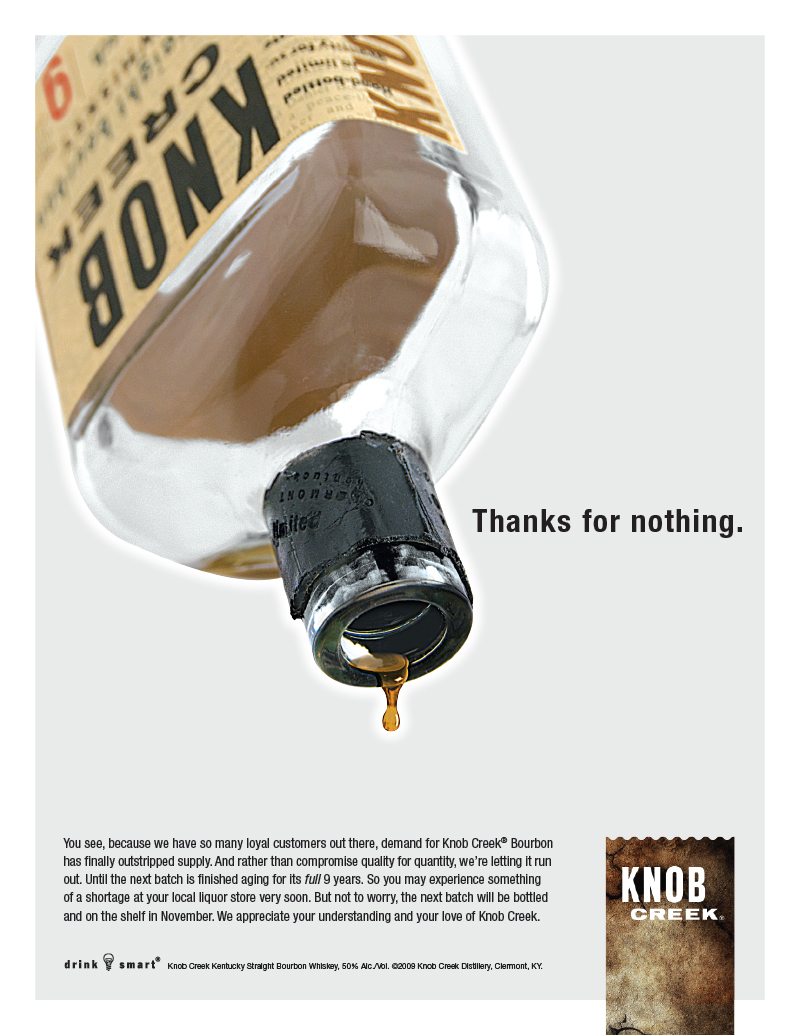
Knob Creek isn’t a brand we see too often in Britain and now I know why. You can’t get any until November 2009, as they have sold all of their production for this year.
This sounds like rather silly planning until you hear that they actually made this years batch in 2000 and then had to throw it in barrels for nine years to stop it tasting like Austrian Antifreeze.
Planning what you are going to do next year is hard enough, but to try and take a guess on what you are able to sell nine years hence must be nigh on impossible.
But the people at Knob Creek seem to have had rather a clever idea. They’ve decided to do nothing. And then tell everyone about it to prove how incredibly scarce their product is. They’ve also built folklore into the fact that they won’t compromise their quality for anyone or anything – and I have to say that this seems like a truly brilliant strategy.
Our own English hero, Sir John Harvey Jones in his Troubleshooter series, tried to get the Morgan Car Company to increase their output in order to work their way through their enormous waiting list. The family owned Morgan were one of the very few companies to ever decline his advice and have continued to go from strength to strength ever since by building on this scarcity.
Cadbury’s Crème Eggs are another great example. Between new years day and Easter, they sell approximately £45m worth of the little gooey delights and have still resisted the temptation to make them available all year round. Good for them too, a rare piece of common sense in an industry full of brand extensions we don’t need, or even much like.
In effect, what they proved was that we all want what we can’t actually have and the more we can’t have it, the more we want it.
The temptation for all three of these brands would have been to cash in and capitalise on their goodwill and brand to create cheaper, less scarce copies, but instead, they have chosen to hold their production volumes down and keep the scarcity, and as an effect of this – the demand, extremely high.
In this age of brand extensions for the sake of it, leaving your potential customers wanting a little bit more seems like a remarkably clever strategy.